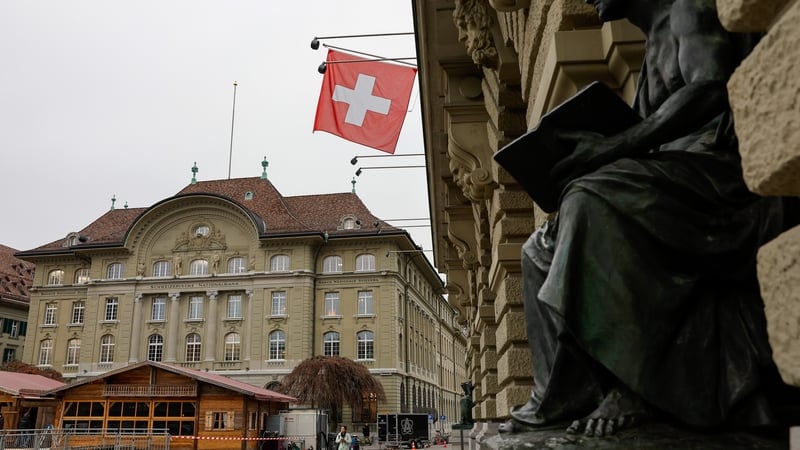Switzerland’s central bank cut its key interest rate by a quarter percentage point to 0.25% today, citing “high uncertainty” in the global economy.
The Swiss National Bank made its fifth cut since March last year, saying it anticipated the global economic growth would remain moderate over the coming quarters.
“With today’s rate adjustment, the SNB is ensuring that monetary conditions remain appropriate, given the low inflationary pressure and the heightened downside risks to inflation,” the central bank said in a statement.
“The SNB will continue to monitor the situation closely and adjust its monetary policy if necessary, to ensure that inflation remains within the range consistent with price stability over the medium term,” it stated.
The SNB said it anticipated that global economic growth would remain moderate over the coming quarters, while inflationary pressure should continue to ease gradually over the next quarters, particularly in Europe.
“This scenario for the global economy is currently subject to high uncertainty. The situation could change rapidly and markedly, particularly from a trade and geopolitical perspective,” it said.
“For example, increasing trade barriers could lead to weaker global economic development. At the same time, a more expansionary fiscal policy in Europe could provide stimulus to the economy in the medium term,” it added.
The move comes the day after the US Federal Reserve paused interest rate cuts again yesterday and warned of increased economic uncertainty as it seeks to navigate an economy unnerved by President Donald Trump’s stop-start tariff rollout.
Policymakers voted to hold the US Fed’s key lending rate at between 4.25% and 4.5%, the Fed announced in a statement.
The Federal Reserve has pencilled in two rate cuts this year, but chairman Jerome Powell noted that “uncertainty today is unusually elevated” and that inflation is ticking up.
“The economic outlook for Switzerland has become considerably more uncertain,” the SNB said today.
“Against the backdrop of increased trade and geopolitical uncertainties worldwide, developments abroad continue to represent the main risk,” it added.
The SNB said it expects GDP growth of between 1% and 1.5% for 2025, with domestic demand likely to benefit from rising real wages and monetary policy easing.
However, moderate economic activity abroad looks set to have a “dampening effect” on foreign trade, meaning unemployment is likely to continue to rise slightly.
The SNB anticipates GDP growth of around 1.5% for 2026.
The bank said that since the last monetary policy assessment, inflation had developed in line with expectations, decreasing from 0.7% in November to 0.3% in February, particularly thanks to a drop in electricity prices in January.




